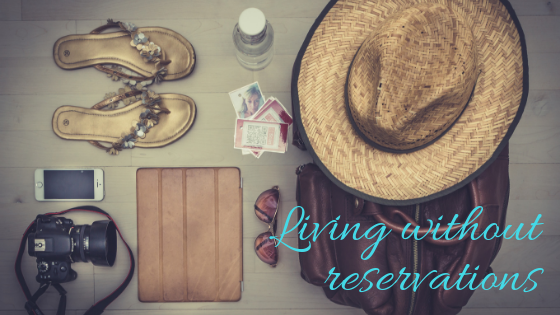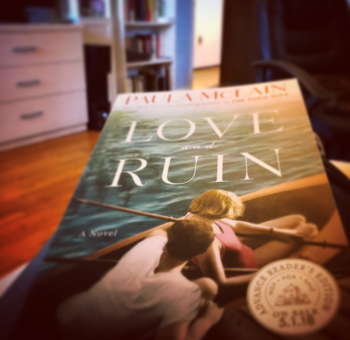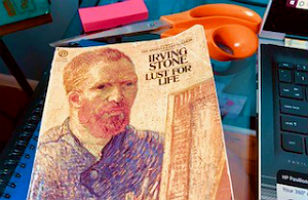
Before my parents got sick, before my corporate job was on thin ice, before we were juggling two houses and four animals, my husband and I traveled often. Sometimes it was behind the wheel of our SUV, sometimes in coach with a coveted packet of peanuts, sometimes on foot with backpacks, we found new places to explore and recharge.
We were freer people those days, with less emotional–and literal–baggage. I miss those people.
I recently finished reading Without Reservation: The Travels of an Independent Woman by Alice Steinbach. Published in 2000, the book is a travelog-style memoir, a more historical, more reserved Eat, Pray, Love.
Like me, Alice Steinbach was a writer. And, like me, she often experienced life behind the lens of chronicler of time. The skills that make us more observant and our senses heightened can also create a wall between living in the moment and mentally documenting the memory instead of actually experiencing it. You know, when you compose an Instagram post in your head–complete with the requisite 9 hashtags–instead of feeling all the feels in real time. That.
She writes, “What you need to do, a voice inside me said, is to step out and experience the world without recording it first in a reporter’s notebook. After fifteen years of writing stories about other people, you need to get back into the narrative of your own life.” Yes!
During her travels, she learns to let go of her schedule a bit and be more present. If a mishap occurs, altering her plans, she vows to lean into the change and follow the adventure wherever it leads. Yes yes!
“Why, I wondered, couldn’t I feel this way more often? The answer, I decided, was that having fun isn’t really what most of us do best. What most of us do best is work and worry,” Steinbach writes. “Often we combine the two into one consuming preoccupation: worrying about work…. I found myself trying to figure out how much of my life had been consumed by worrying. If totaled up in years, what would it amount to? One year? Five? Ten? Whatever the figure, it was too high.” Preach!
Worry and anxiety and fear had derailed me, I realize. I no longer leap; I research and whiteboard it, create a spreadsheet and run the numbers. I’ve taken the fun out of life and replaced it with… ugh. Boring. I’d replaced it with boring. I’ve realized that we got into the habit of being “too busy” for adventure, and even when our situation changed, we remained stuck in neutral.
“Tell me, what is it you plan to do with your one wild and precious life?” asks American poet Mary Oliver. Life is indeed precious. Let’s not forget it. Let’s not replace spontaneity with stagnation.
This time next year I hope to echo Alice: “I had surprised myself this year by jumping in to reshape my life before life stepped in to reshape it for me.”
Let’s do this thing.


